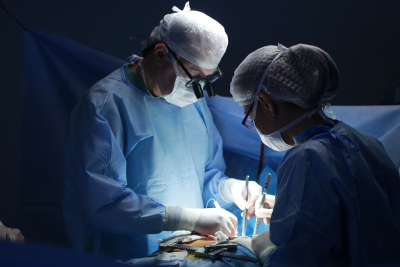The Art of Surgical Dexterity: Mastering Precision

What is surgical dexterity and why is it so important?
Surgical dexterity is the aptitude and skill required to manipulate surgical instruments with precision, control, and coordination. Utilizing both gross motor and fine motor skills, surgical dexterity enables surgeons to perform complex maneuvers with accuracy. By navigating through intricate anatomical structures while minimizing tissue trauma, it involves a combination of hand-eye coordination, tactile sensitivity, spatial awareness, and muscle memory, allowing surgeons to execute precise actions such as suturing, tissue dissection, and organ manipulation. Mastering surgical dexterity is crucial for ensuring optimal surgical outcomes, minimizing complications, and maximizing patient safety.
Surgical dexterity is an essential skill that every aspiring surgeon must develop to provide optimal patient care. The ability to perform intricate maneuvers with precision and finesse can greatly impact surgical results. Let’s explore the importance of training surgical dexterity, its significance for medical students and residents, and some practical tips to enhance this crucial skill.
Importance for Medical Students and Residents
For medical students and residents, developing surgical dexterity is a fundamental aspect of their training. Aspiring surgeons must acquire this skill to progress in their careers and deliver the highest standard of patient care. Mastering surgical dexterity provides several crucial benefits:
-
Enhanced Patient Safety: Proficient surgical dexterity reduces the risk of surgical errors, complications, and post-operative complications. It allows surgeons to perform precise movements, ensuring accuracy while minimizing damage to surrounding tissues and organs.
-
Efficiency in Surgical Procedures: With increased dexterity, surgeons can complete procedures more efficiently. Fine-tuned movements enable quicker and more precise suturing, dissection, and tissue manipulation, resulting in reduced surgery times and improved patient outcomes.
-
Adaptability to New Techniques: As the field of surgery evolves, new technologies and techniques emerge. By honing surgical dexterity, medical students and residents can easily adapt to these advancements. It enables them to effectively utilize robotic surgical systems, laparoscopic instruments, and other minimally invasive tools.
-
Improved Surgical Confidence: Developing surgical dexterity instills confidence in aspiring surgeons. The ability to perform complex maneuvers with precision boosts self-assurance, allowing residents and students to face challenging cases with composure and poise.
Training Surgical Dexterity
Training surgical dexterity requires a combination of theoretical knowledge, deliberate practice, and practical experience. Here are some effective strategies for medical students and residents to enhance their surgical dexterity:
- Simulation-Based Training: Simulation-based training has revolutionized surgical education, providing a safe and controlled environment to practice and refine surgical skills. Surgical task trainers (like most of Sim*Vivo's product line), virtual reality simulators, and computer-based programs allow medical students and residents to perform simulated surgeries and clinical skills, replicating real-life scenarios. These tools offer the opportunity to improve hand-eye coordination, instrument manipulation, and decision-making skills. Regular practice with these simulators enhances precision, speed, and accuracy in executing surgical maneuvers.
- Surgical Workshops and Courses: Participating in hands-on surgical workshops and courses offered by reputable institutions is an excellent way to enhance surgical dexterity. These programs provide an immersive learning experience, combining didactic sessions with practical exercises. Students and residents can learn from experienced surgeons, observe live surgeries, and practice under their guidance. Workshops focusing on specific procedures or techniques, such as laparoscopic surgery or microsurgery, allow for targeted skill development.
- Mentorship and Observership: Seeking mentorship from skilled surgeons can provide invaluable guidance in developing surgical dexterity. Mentors can share their expertise, provide constructive feedback, and offer insights into mastering intricate surgical maneuvers. Actively participating in surgical procedures as an assistant or observer allows medical students and residents to witness different surgical approaches and techniques. Observing skilled surgeons in action provides a comprehensive understanding of surgical dexterity, highlighting nuances that textbooks cannot capture.
- Regular Skill Practice: Consistent and deliberate practice is crucial for improving surgical dexterity. Structured practice sessions should be incorporated into the daily routine of medical students and residents. Focus on specific skills such as suturing (Sim*Suture), knot tying (Sim*Tie), tissue dissection (Sim*Dissect), and instrument manipulation (Sim*Lap). Start with simpler tasks and gradually progress to more complex procedures as proficiency improves (Sim*Skin*Advanced). It is essential to seek feedback from mentors and colleagues to identify areas for improvement and refine techniques.
- Multidisciplinary Collaboration: Collaborating with professionals from other disciplines can offer fresh perspectives on fine motor skills and dexterity. Artists, musicians, or athletes, for example, possess exceptional control and coordination in their respective fields. Engaging in discussions or activities with them can inspire innovative approaches to surgical techniques. Exploring parallels between different disciplines fosters creativity and expands the understanding of dexterity beyond the realm of medicine.
- Continued Education and Professional Development: Surgical dexterity is a lifelong skill that requires ongoing learning and refinement. Stay updated with the latest advancements in surgical techniques and instruments by attending conferences, seminars, and webinars. Continuing education programs offer opportunities to learn from experts, share experiences with peers, and explore emerging technologies. Embracing new surgical approaches and incorporating innovative tools into practice enhances surgical dexterity and keeps surgeons at the forefront of their field.
In the world of surgery, surgical dexterity stands as an indispensable skill that medical students and residents must cultivate on their path to becoming proficient surgeons. The ability to perform precise and controlled maneuvers with surgical instruments is crucial for achieving optimal patient outcomes. Through deliberate practice and targeted training, aspiring surgeons can enhance their surgical dexterity, leading to improved patient safety, enhanced efficiency, and increased surgical confidence.
Ultimately, surgical dexterity is an art that merges technical precision with the compassionate goal of healing. As aspiring surgeons embark on their journey, the cultivation of surgical dexterity serves as a testament to their dedication, commitment, and unwavering pursuit of excellence in the noble field of medicine.





